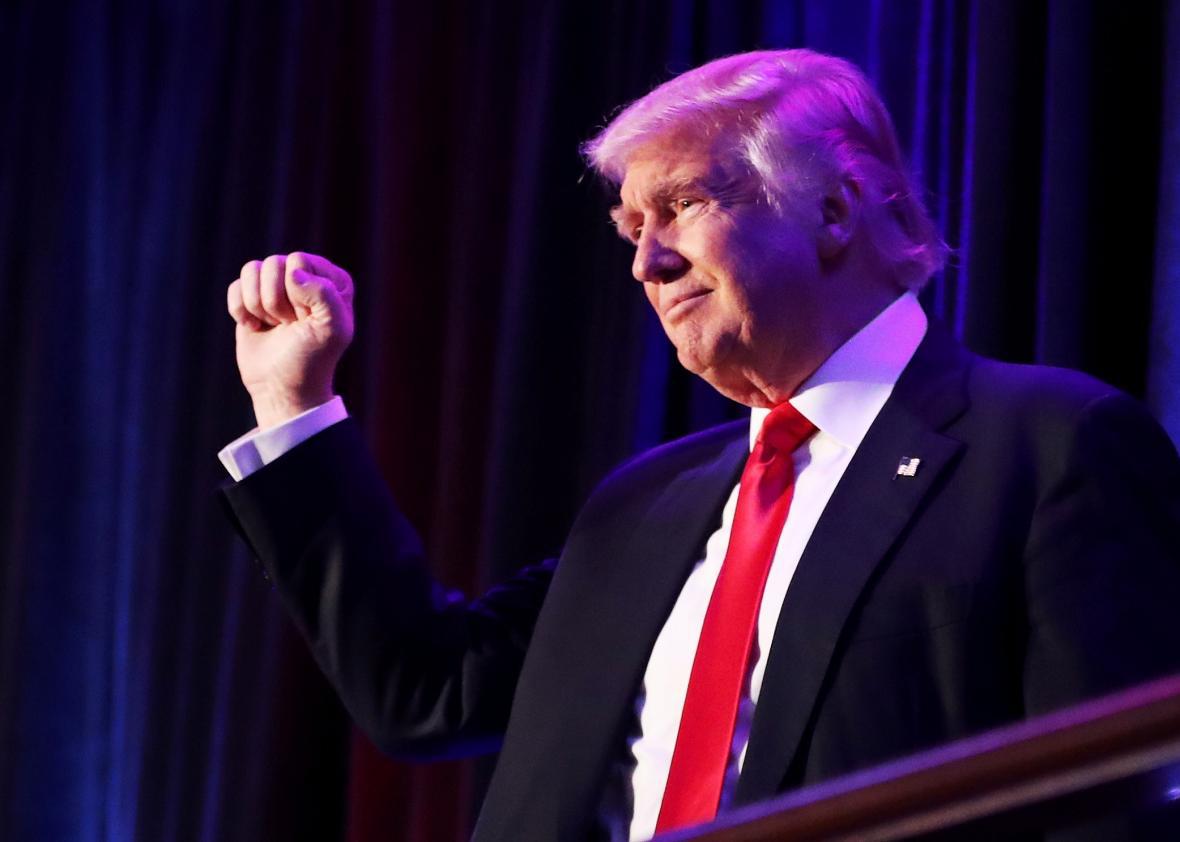After Donald Trump won the presidency, a dazed chorus emerged: What happened? The stunned syllables headlined the news. “US election: What happened?” ran Larry Beinhart’s analysis in Al Jazeera. “What happened to America?” as Griff Witte and Simon Denyer reported abroad for the Washington Post. We voiced these bewildered words closer to home, too. But this little phrase what happened is much more than a simple question looking for a literal answer. It also gives us insight into how we think about Trump’s election – and offers profound implications for what’s ahead.
In the immediate wake of Trump’s election, we didn’t need to specify what it was that happened. We all know what Vice News is referring to when they introduce a video, “What happened? Why did it happen? What happens next?” What else could it be? What happened is what happened, a new gestalt so all-consuming and self-evident, so unexpected and consequential, that any specification is required only for patients waking up from comas. It’s the vocabulary of collective experience, of a solidarity forged by an era-defining event. We are bound together, divided a country as we are, by the sheer fact of what happened.
The phrase also telescopes complexity. “What happened? How Pollsters, Pundits, and Politics Got It All Wrong,” NPR’s Shankar Vedantam wrote. What happened enfolds the grander, stranger narrative of the 2016 presidential campaign, of America at this American-historic moment. With what happened, we can nod to a thick nest of forces and factors that shaped Trump’s victory while admitting that will be teasing out what, exactly, they are for a very long time to come.
We don’t use what happened for good news, of course. It expresses disbelief in the face of our own setbacks. “What happened?” we are open-mouthed after an unannounced layoff, a breakup out of the blue, or learning a friend we just had coffee with suddenly dropped dead. The phrase registers the dismay of devastation. It’s a threshold language, what happened, of paradigm shifts, sea changes, and rude awakenings. We thought we knew how the universe worked, we thought we understood its rules. But then something happened. An earthquake. A war. A Trump presidency. The world capsized our expectations, defied whatever logic, order, and conventional wisdom we vainly and arrogantly attempted to pin to it. We are reduced to uttering what happened, taking those three beats to register that we have entered some brave new world, that everything will now be different.
Yet while what happened acknowledges the seismic shifts like Trump’s election, it also hides from them. As Lynne Murphy, an American linguist who lives and works in England, observed: “Been asked for comment on election result several times today. ‘What happened yesterday’ is what they call it. New taboo.” Taboo, indeed, as what happened morphed into it happened: The Economist dissected Trump’s win with a piece titled “How It Happened.” Morocco World News published: “US Election: Yes, It Happened, Now What?” Variety noted this trend as well: “Donald Trump’s Victory Stuns the World: ‘It Happened’.” If we avoid invoking the words Trump won, perhaps we can keep all its evils contained in Pandora’s lexical box of what happened.
The language of what happened, finally, implies a cynical and defeatist passivity, a kind of disempowering victimization. The Trumpian Fates cut their cloth, the Wheel of Fortune turned. The stars aligned, the gods played on Olympus. And those of us fearful of this Trump presidency were powerless, cosmically and inevitably powerless, to do anything stop it. What happened? How could this happen? Why did this happen? It happened. Each what, this, and it gobbles up our own agency and responsibility, occluding, in their verbal abstraction, that what happened, while so much larger than any individual act or actor, was still human doing. As we seek to understand what happened, we’d be wise to remember that what will happen now is not a foregone conclusion beyond our control. It’s in our determination, a principle grounded in the core of democracy itself.
